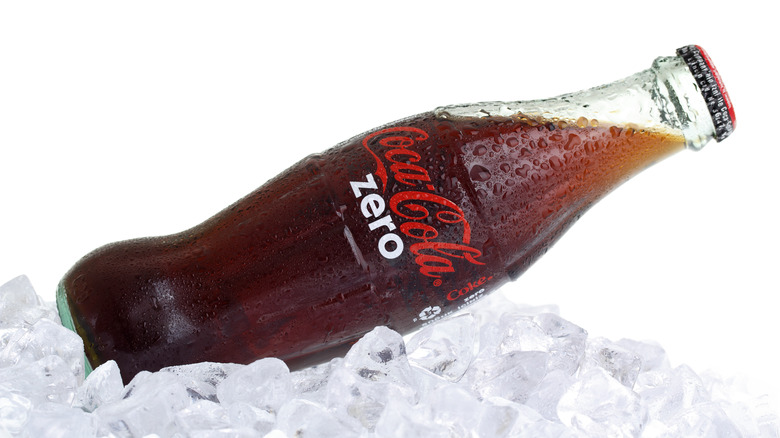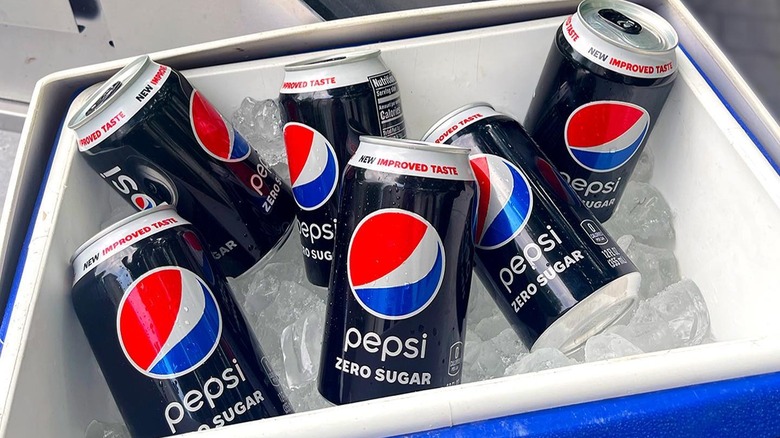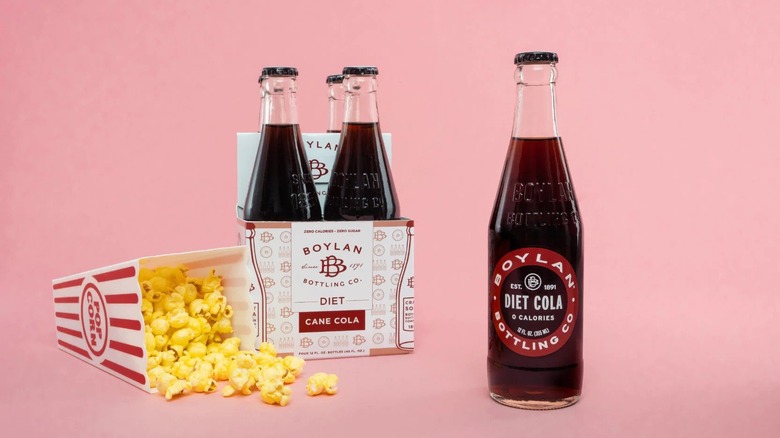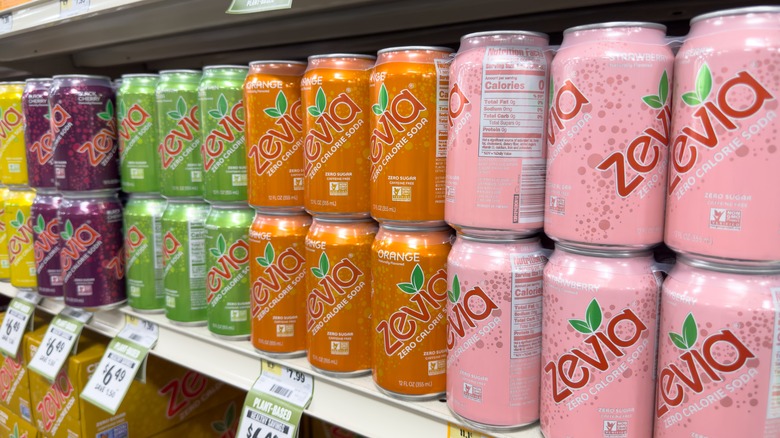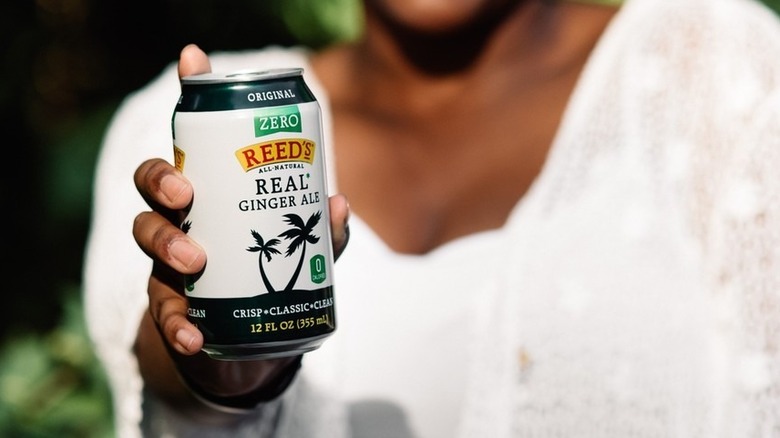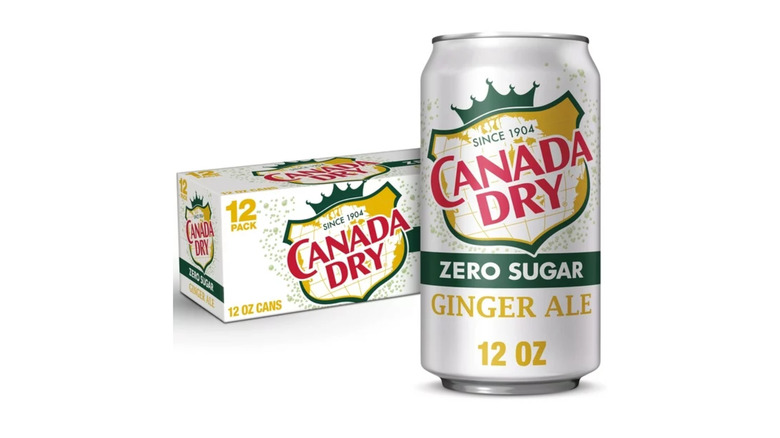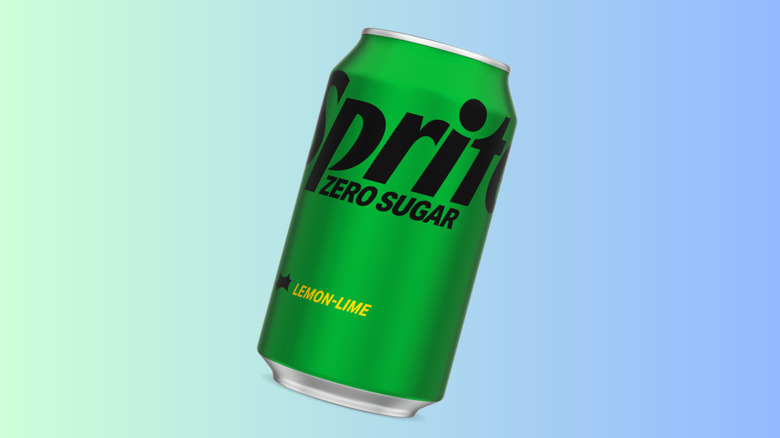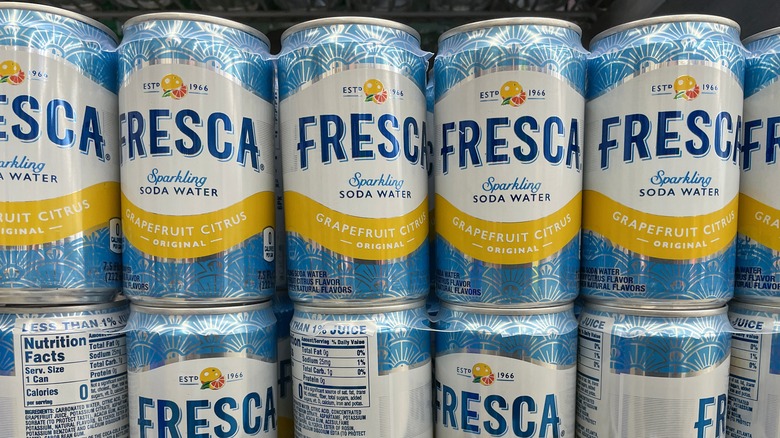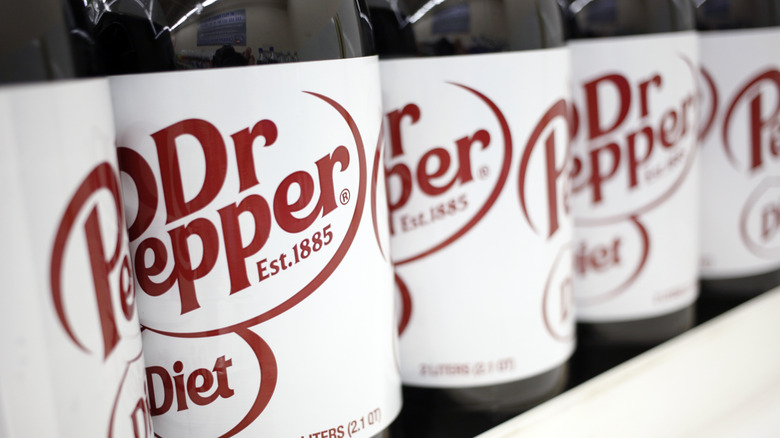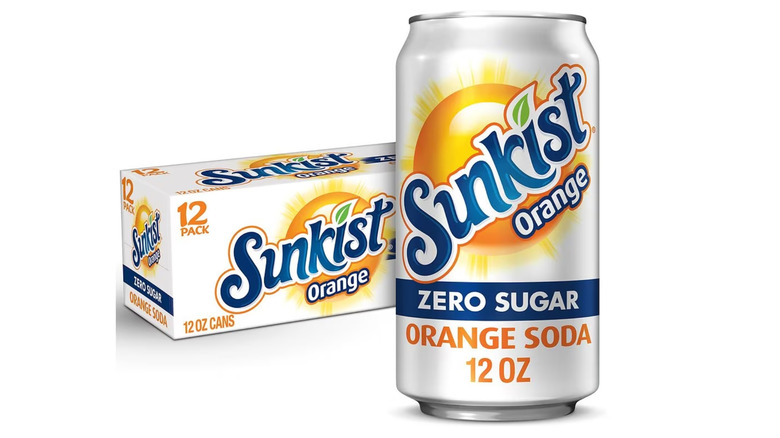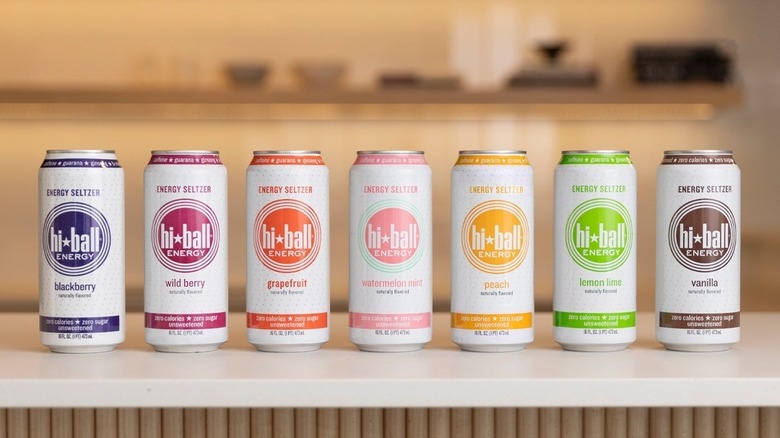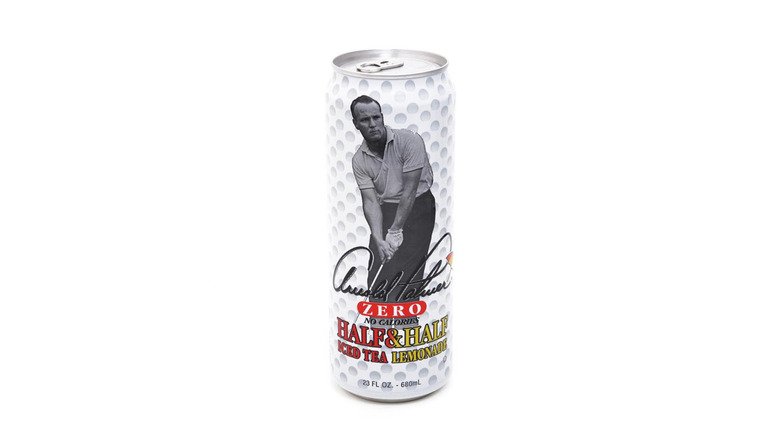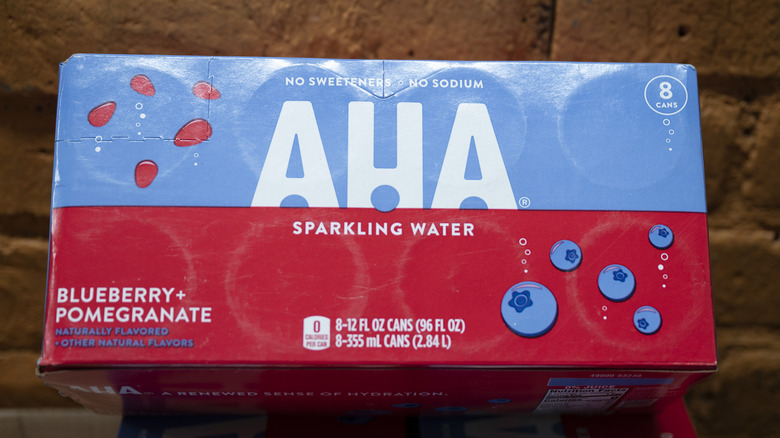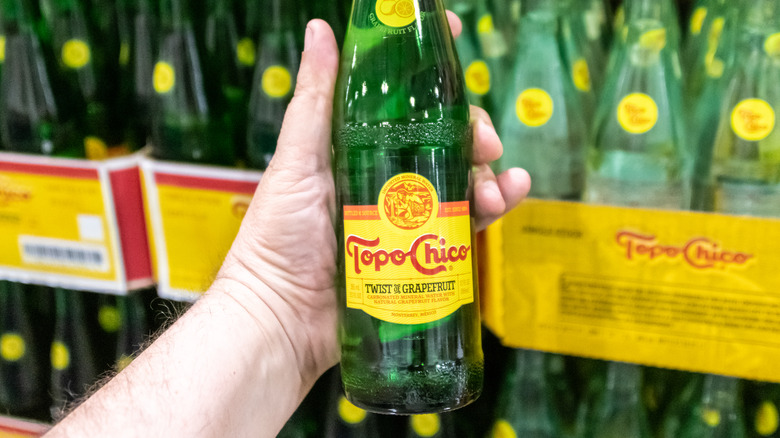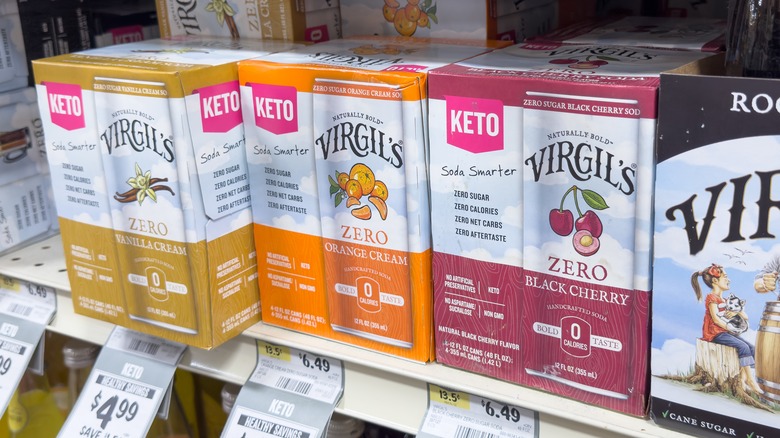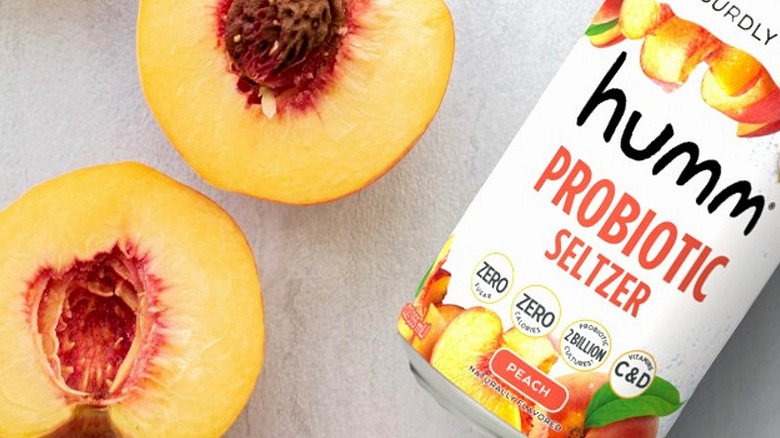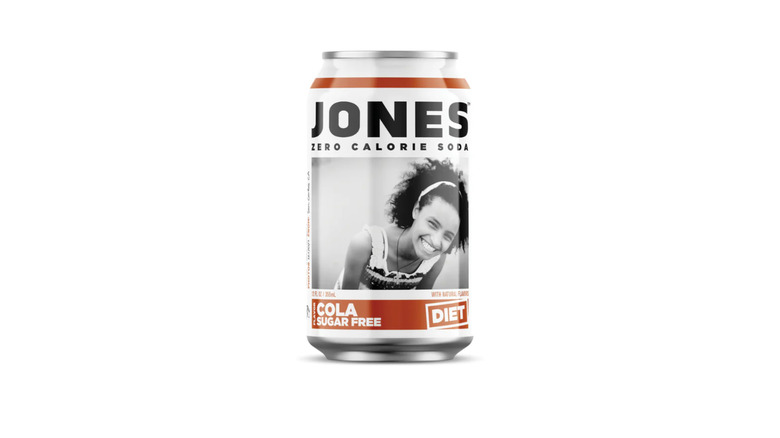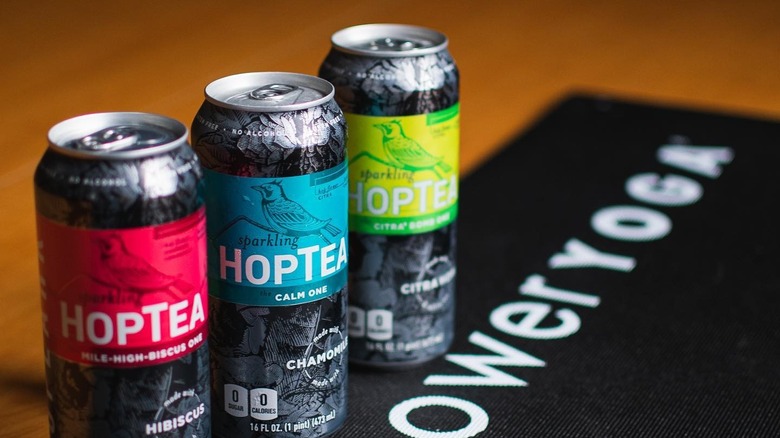18 Zero-Calorie Drinks That Aren't Plain Water
Although nothing beats water when it comes to hydration, it's okay to crave something a little more interesting from time to time. However, traditionally the most flavorsome and exciting beverages come with a significant drawback: they tend to be high in sugar and calories.
While there's nothing wrong with indulging in less healthy beverages from time to time, a single can of regular soda can make a significant dent in your recommended daily allowances. Fortunately, in an increasingly health-aware world, we're now spoiled for choice when it comes to zero-calorie drink options.
Today we have innovative new creations, like hop-based iced teas and probiotic sparkling waters taking their place alongside the sugar-free classics that have dominated the market for decades. Below, we've put together a list of our favorite water alternatives that are guaranteed to wet your whistle while helping you stay healthy.
1. Coke Zero
Coca-Cola is far and away the planet's most popular soft drink but with 39 grams of sugar and 140 calories per 12-ounce can, it's a beverage that definitely has to be enjoyed in moderation. Diet Coke is a perfectly acceptable alternative to regular Coke for some people, but others would argue that it's not the perfect substitute.
The fact is, not everyone likes the lighter taste of Diet Coke, which makes Coke Zero an excellent choice for those who want the classic Coke taste without the extra calories. For the most part, the ingredients are the same as Diet Coke, except for the use of different sweeteners and flavorings to more accurately imitate the real deal. Coke Zero also has less caffeine than Diet Coke, which makes it ideal for folks who are looking to cut down.
2. Pepsi Zero Sugar
Originally sold under the name Pepsi Max, Pepsi Zero Sugar is PepsiCo's zero-calorie, sugar-free version of regular Pepsi. However, while Coke had to eventually address the fact its diet product didn't have a bold enough flavor for some buyers, Pepsi had no such issue. Instead, it managed to formulate Pepsi Zero Sugar in a way that gave it a bolder, more intense flavor while nearly doubling the amount of caffeine in each can.
It's rare that a guilt-free option manages to surpass the full-sugar version of a drink, but Pepsi managed to pull it off to the delight of fans everywhere. If you're a die-hard Coke fan, it might not be enough to convince you to swap sides — at least not with Coke Zero on shelves — but it's definitely worth giving it a shot if you haven't tried it yet and don't mind the extra caffeine.
3. Boylan's Diet Cane Cola
While Boylan Bottling Co. may not have the international recognition of Pepsi or Coca-Cola, the New York-based, craft soda brand has been honing its recipes for about as long as the two heavyweights – around 130 years. Boylan's is known for its high-quality products that use pure cane sugar, as opposed to high fructose corn syrup.
For its diet range, Boylan's turned to artificial sweeteners, but its hand-crafted cola is still incredibly delicious and refreshing, with a more natural-tasting flavor than its mass-produced counterparts. Even better, if cola isn't your thing, its zero-calorie range — while on the smaller side — also includes a rich black cherry soda, a dry ginger ale that's perfect for mixing, an earthy root beer, and a beautifully smooth creme soda.
4. Zevia
While Zevia is a relatively new kid on the block, having only been around since 2007, its pioneering approach to developing better-for-you soda alternatives has built its reputation as the go-to zero-calorie soft drink brand. What sets Zevia apart from much of its competition is its natural approach to soda-making: it only uses a natural sweetener — stevia — in its drinks.
The Zevia soda range is far-reaching, with standout examples including its Ginger Root Beer, Grape, and Orange flavors. It also has Dr Zevia — a zero-calorie version of Dr Pepper that tastes remarkably close to the real deal — and Mountain Zevia — a Mountain Dew alternative that's missing the big citrus hit of the original, but is a commendable attempt at a healthier clone. Zevia has also expanded its offerings in recent years by introducing a range of energy drinks and flavored iced teas, all of which are sugar-free and contain no calories.
5. Reed's Zero Sugar Ginger Beer
Fans of ginger beer can be very particular, as it can be a tricky drink to perfect. First, you want the spicy kick of the ginger to hit before giving way to the smooth, refined finish that offers a touch of sweetness without being cloying. Fortunately, Reed's has been crafting ginger beer that does just that for over three decades, using only natural ingredients.
However, while Reed's Ginger Beer is superb, it still has 140 calories and 35 grams of sugar per 12-ounce bottle, nearly as much as a can of Coke or Pepsi, which is why its Zero Sugar Ginger Beer really hits the mark. Using a natural sweetener blend of erythritol, stevia leaf extract, and monk fruit extract, the Zero Sugar version still manages to provide a big zesty hit of natural ginger root with no discernible loss of flavor. What's more, if you're a ginger beer fan who likes to feel the burn, Reed's also makes a sugar-free alternative to its Extra Ginger Beer, which contains double the amount of ginger as the regular version.
6. Canada Dry Zero Sugar Ginger Ale
Ginger beer's less-intense sibling, ginger ale, has a long and storied history. It started to become popular at the turn of the 20th century. It became even more popular during prohibition when the poor quality of homemade alcohol needed to be masked with a mixer. A name that's been synonymous with ginger ale since the beginning is Canada Dry, a company that created its own ginger ale as a less-sweet alternative to the competition — hence the name "dry" — back in 1904.
In some ways, Canada Dry Ginger Ale has held onto its roots, as people still love to use it as an alcohol mixer. However, it still has 35 grams of sugar and 140 calories in every 12-ounce can, so it can hardly be considered healthy. Fortunately, Canada Dry released a version of its classic beverage without sugar or calories, and fans of the original have been extremely impressed with the more wholesome alternative.
7. Sprite Zero Sugar
Nothing beats an ice-cold, refreshing citrus soft drink on a hot day, and Sprite has been fulfilling that role since the 1960s. However, despite its light and refreshing taste, the go-to carbonated lemon-lime beverage is approximately as sugary as a classic Coke.
Fortunately, Sprite Zero — which is sugar-free and calorie-free — was released way back in 1974, so there's been a healthier version kicking around for a long time and it's almost indistinguishable from the full-sugar version. While Sprite Zero has a lighter taste profile than the original, it's surprisingly sweeter with a more tangy citrus flavor.
Interestingly, about a decade ago, some countries in Europe reformulated Sprite to contain much less sugar, using a recipe that combined both sugar and artificial sweeteners. So, while you can still get a zero-sugar version, the standard Sprite available in these countries has much less sugar per can.
8. Fresca
Unveiled by The Coca-Cola Company in 1964, Fresca — which means "fresh" — quickly became a national favorite. However, its citrus profile of grapefruit and tangerine wasn't the only unique thing about Fresca — it's always been sugar-free with no calories.
While the classic taste has remained relatively unchanged over the years, Coca-Cola Was forced to reformulate its recipe in the 1970s, when the artificial sweetener, cyclamate, was banned in the United States. Despite many countries declaring cyclamate safe for consumption, the U.S. has never changed its position, so the new formula stuck around.
Coca-Cola eventually decided to expand its range of Fresca sparkling soda waters, based on the original's massive popularity, and as a result, you can now find tasty Fresca flavors such as Blackberry Citrus, Black Cherry Citrus, and Peach Citrus.
9. Diet Dr Pepper
It's hard to pin down the exact flavors of Dr Pepper, but that hasn't stopped it from becoming the favorite soft drink of millions. Dr Pepper's unique taste has hints of cola, cherry, vanilla, and possibly licorice and cinnamon, depending on who you ask.
Dr Pepper was pretty far ahead of the game when it came to releasing a healthier alternative to the original, producing a sugar-free alternative way back in 1963, called "Dietetic Dr Pepper." Thankfully, the product went through a few name changes before settling on the far more palatable Diet Dr Pepper.
Like most zero-calorie alternatives, Diet Dr Pepper isn't quite as syrupy as regular Dr Pepper, with a slightly lighter, smoother taste. However, all your favorite flavors — whatever they are — still feature prominently. Plus, you'll be cutting out around 150 calories and 39 grams of sugar per 12-ounce can by making the switch.
10. Sunkist Zero Sugar Orange Soda
If you ask most orange soda fans about their favorite brands, Sunkist is bound to show up time and time again. While Sunkist may not have been as early to market as its closest competition in terms of sales — Fanta and Crush — that doesn't mean there aren't a few tricks up its sleeve.
First, even regular Sunkist is less sweet than most of the competition, with a more natural orange flavor profile when compared to the orange candy-like flavors of other brands. Sunkist is also one of the few caffeinated orangeades, making it perfect for those who still like a buzz from its soda. When it comes to Sunkist Orange Zero Sugar, it may taste slightly sweeter than the calorific original, but it definitely comes close — which is more than can be said for most of the competition.
11. Hiball
For many, making healthier drink choices also means avoiding energy drinks like the plague, thanks to their exorbitant sugar content and calorie count. Even if you don't care about what's on the label, most energy drinks are insipid, with a teeth-itching sugariness that's too much for those without a real penchant for sweetness.
Fortunately, the gap in the market for a low-sugar, low-calorie energy drink that can still put a pep in your step has been filled quite successfully by the likes of Hiball and its Energy Seltzer range. With 160 milligrams of natural caffeine, Hiball's range of seltzers has no sugar, sodium, calories, carbs, artificial sweeteners, taurine, or preservatives. Hiball also has an impressive flavor selection available, including tart grapefruit, creamy vanilla, and a super refreshing watermelon mint.
12. AriZona Arnold Palmer Zero
It's easy to spot AriZona's iced teas on almost any supermarket shelf thanks to its iconic, colorful 23-ounce cans with a printed promised price of just 99 cents. It's also the only company with the official right to use Arnold Palmer's name and likeness when it comes to selling the soft drink named after the golfing legend.
For those unfamiliar, the non-alcoholic drink is a super refreshing half-and-half blend of unsweetened iced tea and lemonade that was regularly requested by the late Arnold Palmer himself and eventually became as iconic as its inventor. Despite using unsweetened iced tea, an Arnold Palmer still contains a fair amount of sugar, and it's worth remembering that AriZona frequently sells its drinks in cans that are almost twice as big as a standard Coke can. Fortunately, AriZona has since released a "Lite," low-sugar version of its Arnold Palmer as well as a "Zero" version with no sugar or calories whatsoever.
13. AHA Sparkling Water
As consumers have become more health-conscious, the big players in the soda market have had to start looking for ways to fill gaps in the market, which is what led Coca-Cola to launch its range of AHA Sparkling Water back in 2020. With no sugar or calories, so far the release has been a big success, with six delicious flavors on sale.
Currently, the range includes Lime and Watermelon, Blueberry and Pomegranate, Orange and Grapefruit, Blackberry and Lemon, Pineapple and Passionfruit, Raspberry and Acai, and Peach and Honey, so there really is a flavor for everyone. Not only does AHA Sparkling Water taste great on its own, but it's also perfect for experimentation as a mixer in both cocktails and mocktails, making it as diverse as it is delicious. Its core range doesn't include caffeine, but if you're after a little extra energy, it also has Black Cherry and Coffee sparkling water that contains 30 milligrams per can.
14. Topo Chico
While Topo Chico sparkling mineral water is far from a new invention, having been around since 1895, not many had heard of the world-class beverage outside of its birthplace of Mexico, or just across the border in Texas, until a few years ago. In 2017, seeing the potential of what many viewed as the ultimate sparkling water, Coca-Cola eventually added the brand to its portfolio for a cool $220 million, bringing it to the attention of the rest of the U.S.
Since Topo Chico's humble beginnings over 120 years ago, there have been a few new additions to the range, including a selection of alcoholic hard seltzers, and a low-calorie fruit juice-based "Sabores" range.
However, if even a single calorie is too much, it's best to stick to its flavored sparkling mineral waters. Currently, this lineup includes the classic unflavored Topo Chico, Twist of Lime, Twist of Grapefruit, and Twist of Tangerine, all of which add just enough natural flavoring to boost the taste, without overpowering the delicate profile and smooth effervescence that make the drink so popular.
15. Virgil's Zero Sugar
Virgil's very first soda — a root beer — was created back in the 1990s. By the end of the decade, its range of offerings expanded. With flavors like Cola, Orange, Black Cherry, and Vanilla Cream grabbing the attention of soda fans up and down America, the brand was snatched up in 1999 by Reed's.
Until relatively recently, Virgil's didn't have a Zero Sugar offering, although it maintained Reed's dedication to quality ingredients, which is why its recipes all used cane sugar as opposed to high fructose corn syrup. However, in 2018 the company went through something of a rebrand and decided to create sugar-free versions of its whole soda range. Interestingly, the company looked to Zevia for inspiration when it came to creating its new, healthier soda line, something which appears to be paying off, in terms of growing sales and a great-tasting product.
16. Humm Probiotic Seltzer
Launched back in 2008, Humm was the brainchild of two friends from Oregon who began upscaling its homebrew kombucha operation into a multimillion-dollar operation. Those who've tried kombucha know that its tart, vinegary flavor can be an acquired taste, which is why many producers use extra fruit juice or sugar to make it more palatable.
Humm, on the other hand, has gone out of its way to keep its range as healthy as possible, which is why it doesn't add any extra sugar to its kombucha. However, because kombucha is a fermented beverage — meaning it requires sugar to be created — there's usually some residual sugar left over, so even its zero-sugar kombucha range has a few calories.
Not wanting its customers to miss out on the probiotic benefits of its drinks, Humm has gone on to create a separate range of fruity sodas and seltzers to sit alongside its kombucha. These use non-fermentable sweeteners to eliminate their calorie count altogether.
17. Jones Soda Zilch
Jones Soda has been the cool kid on the block since the 1990s, leaning heavily into the craft aspect of its business with its hip graphics and marketing. It isn't afraid to introduce interesting flavors like Bubblegum, Pineapple, and Sugar Cookie that sit alongside its classic colas, lemonades, and root beers.
However, at the end of 2009, Jones decided to launch Zilch, ditching cane sugar for Splenda as a sweetener to create a no-sugar, no-calorie soda that's still just as trendy as its less-healthy counterparts. Originally, the Zilch range included flavors like Black Cherry, Vanilla Bean, and Pomegranate, and while it's currently only producing a classic Cola, here's hoping to branch out again with more creative concoctions, like the ones that fill its more sugary selection. Having said that, some of Jones' weirder seasonal offerings have included flavors like Christmas Ham, Christmas Tree, and Eggnog, so perhaps not every one of its sodas needs a comeback.
18. Hoplark
As craft beer has gone from strength to strength over the years, more people are being introduced to the potent flavor potential of hops, the key ingredient in beer that's not only responsible for bitterness, but for an array of aromas that can include citrus, tropical fruit, pine resin, or even white wine. Now if you're wondering why it can't be possible to make use of these delicious hoppy flavors outside of beer, then you're thinking along the same lines as the founders of Hoplark back in 2016.
Although it took Hoplark a couple of years to release a polished product to the public, its range of hop-based teas and sparkling waters has taken the market by storm. The company hasn't held back when it comes to innovation, a fact that's clear when you check out its vast range of beverages. Its range switches up both the tea and the hop varieties, pairing flavors like black tea with Cascade and Citra hops or green tea with Mosaic hops, carefully matching the characteristics of each – and the best part of all? As you've probably already guessed, every one of its drinks is sugar and calorie-free.

